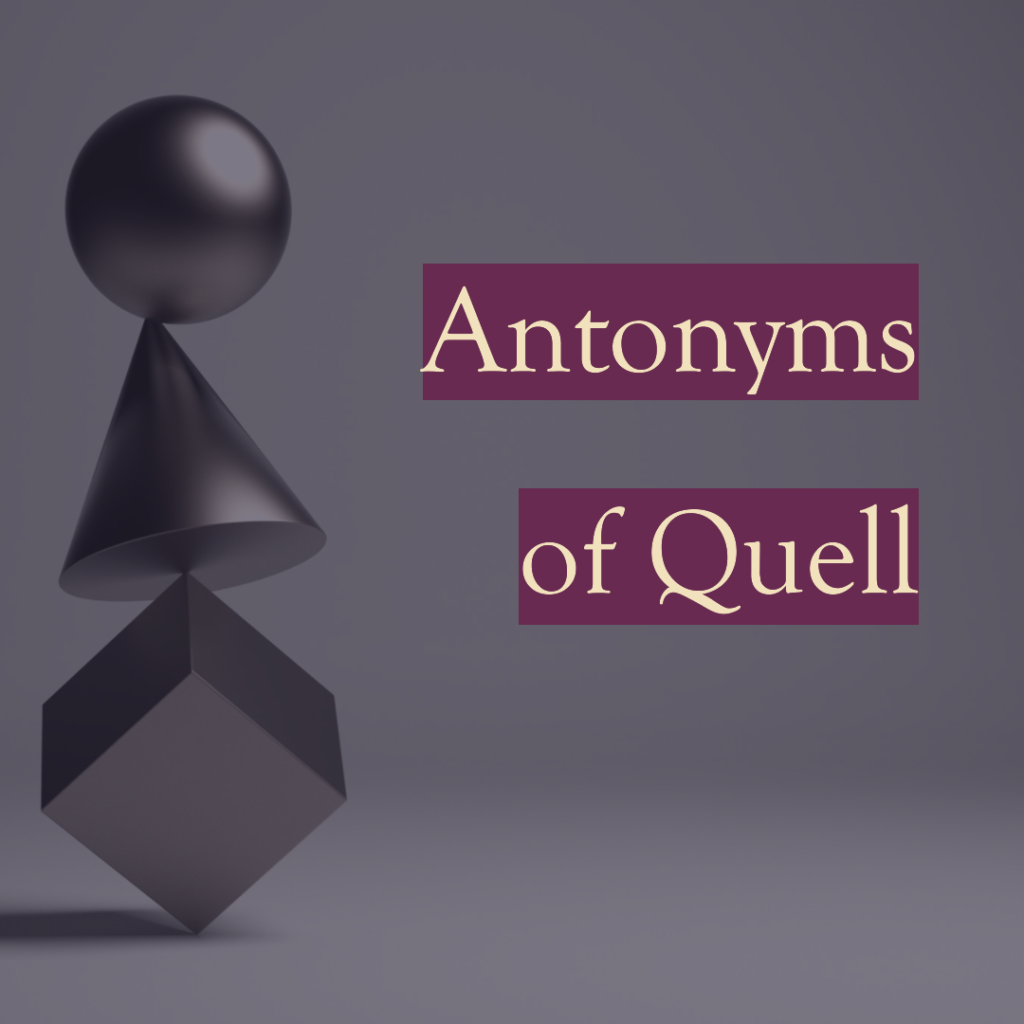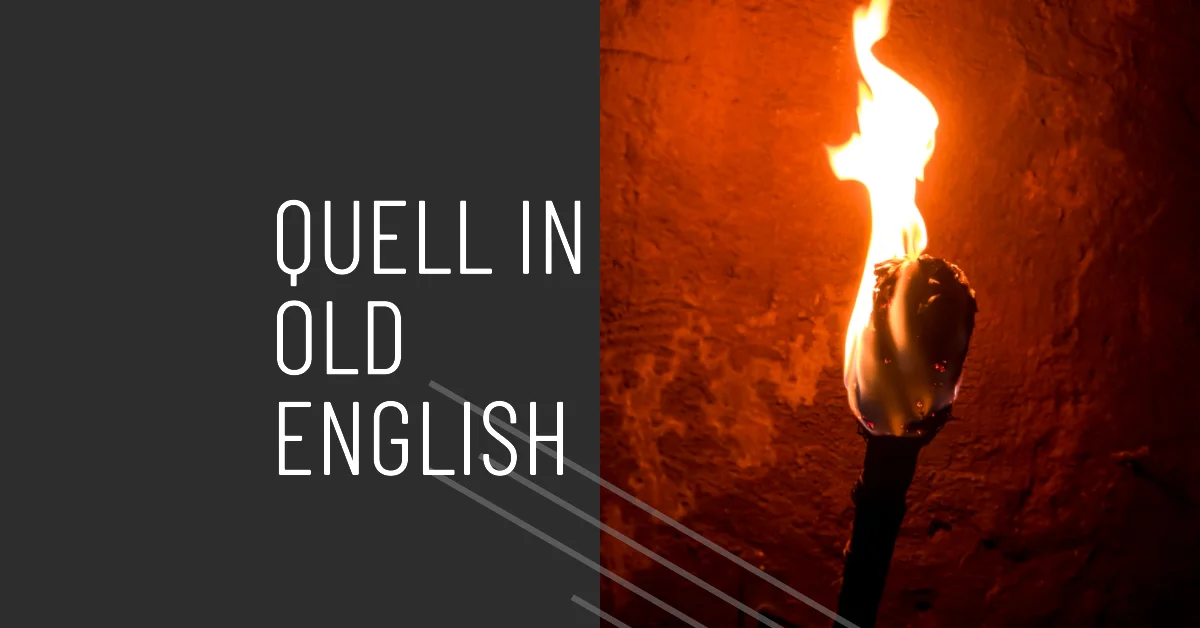What are different quell meaning?
Have you ever wondered about the origins and meanings of the words we use every day? Let’s explore the meaning of “quell” in depth today. What exactly does this word signify?
Here is a table of the different meanings of the word “quell”:
| Meaning | Definition | Example | Synonyms | Antonyms |
|---|---|---|---|---|
| To suppress or put an end to something, especially by force. | The police quelled the riot with tear gas. | quash, suppress, subdue, crush, extinguish, stamp out | allow, permit, tolerate, condone | |
| To quiet or calm something, especially an emotion. | She quenched her fears with a deep breath. | calm, pacify, soothe, allay, assuage, mitigate | agitate, arouse, excite, stir up, exacerbate | |
| To overcome or defeat something. | The army quelled the rebellion. | vanquish, conquer, defeat, subdue, overcome, master | lose, fail, be defeated |
Importance of understanding quell meaning
To hold ourselves steady and in concord, we often need to suppress diverse occasions, emotions, and thoughts that rise up in our everyday existence. Understanding the nuances of quelling can permit us to try this extra correctly, with out compounding the trouble.
Historical significance of the word quell
The phrase quell originated from Old English and was to begin with employed within the 1300s.Historically, it turned into used inside the context of battlefields to consult the suppression of rebel or unrest. It changed into additionally employed to describe the suppression of religious or political dissent.
The Origin of Quell

Quell in Old English
The word “quell” has its roots in Old English. It originated from the word “cwellan,” which means “to kill or murder.”
Quell in Modern English
Over time, the meaning of “quell” has evolved. Today, we often use the word to mean calming down or controlling, not necessarily ending something.
The Various Meanings of Quell
| Usage | Meaning | Example |
|---|---|---|
| Quell as a verb (general) | To suppress or pacify something | “The principal managed to quell the unrest in the school.” |
| Quell as a verb (in a physical context) | To put an end to a physical disturbance or a disorder | “The police quelled the riot.” |
| Quell as a verb (in an emotional context) | To calm or reduce a strong emotion | “She managed to quell her fears and give the speech.” |
| Quell as a verb (in a metaphorical context) | To stop something, especially by using force | “The government quelled the rebellion.” |
| Quell as a noun | A forceful suppression or a pacifying act | “The quell of the protest was seen as a victory for the government.” |
| Quell in idiomatic expressions | Used in phrases to denote calming or alleviating something | “He took deep breaths to quell his nerves.” |
Common definitions of quell
The standard definition of quell is to suppress or calm something, usually a disturbance or rebellion, with force or authority. It is often associate with a violent or forceful approach, although this is not always the case.
Quell as a Verb
In Everyday Language
“Quell” means to calm or pacify a situation. Quelling a rumor can be done by telling the truth. Similarly, a teacher can quell a noisy classroom by asking for quiet.
Quell in Literature
In literature, “quell” can take on a more dramatic tone. It can mean stopping a rebellion or stopping disagreement as a leader.
Quell as a Noun
As a noun, “quell” is less common but still used. It refers to a forceful suppression or a pacifying act.
The Synonyms of Quell
Also Read quell definition
Synonyms for “quell” include suppress, pacify, calm, and subdue. These words mean the same but can be use differently..
The Antonyms of Quell

On the flip side, antonyms of “quell” include incite, provoke, and agitate. These words represent actions that stir up or intensify, rather than calm or suppress.
Quell in Idiomatic Expressions
The word “quell” is also find in idiomatic expressions. For instance, “quell one’s fears” means to calm or alleviate one’s fears.
The Impact of Quell on Language and Culture
The phrase “quell” is crucial in language and way of life. “Keep cool” manner to stay calm in difficult instances. People use it in books, politics, and every day communicate. It’s approximately now not displaying robust emotions. Someone who remains calm in hard conditions is “level-headed”.
Quell in Modern Usage
In contemporary usage, “quell” is still a powerful word. It’s use in information reports, literature, and everyday communique, maintainingits relevance and significance inside the English language.
Last Updated on January 31, 2024 by Shahid Maqsood
Shahid Maqsood, with an MBA and a Master’s in Mass Communications, has 10 years of writing experience. Specializing in news and celebrity coverage, he brings a unique perspective from his love for hunting and camping, difference between. He’s passionate about the outdoors, especially hunting and camping. Shahid contributes to websites like dosttrusty.com, distinctionbetweencom and bruitly.com offering insightful articles on news and celebrities. His straightforward, engaging style makes him a trusted source for readers.


